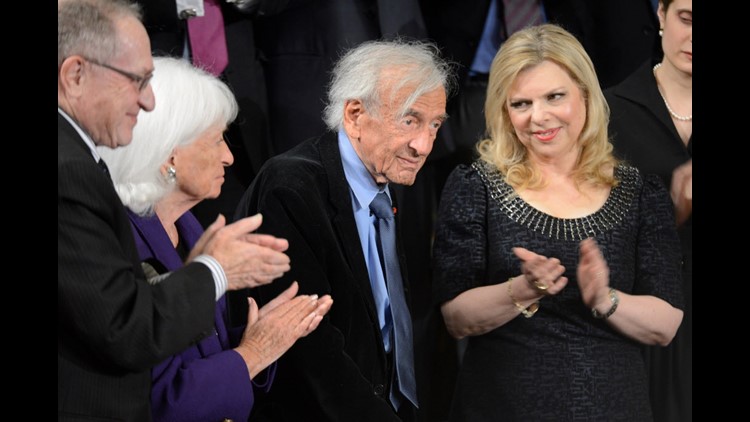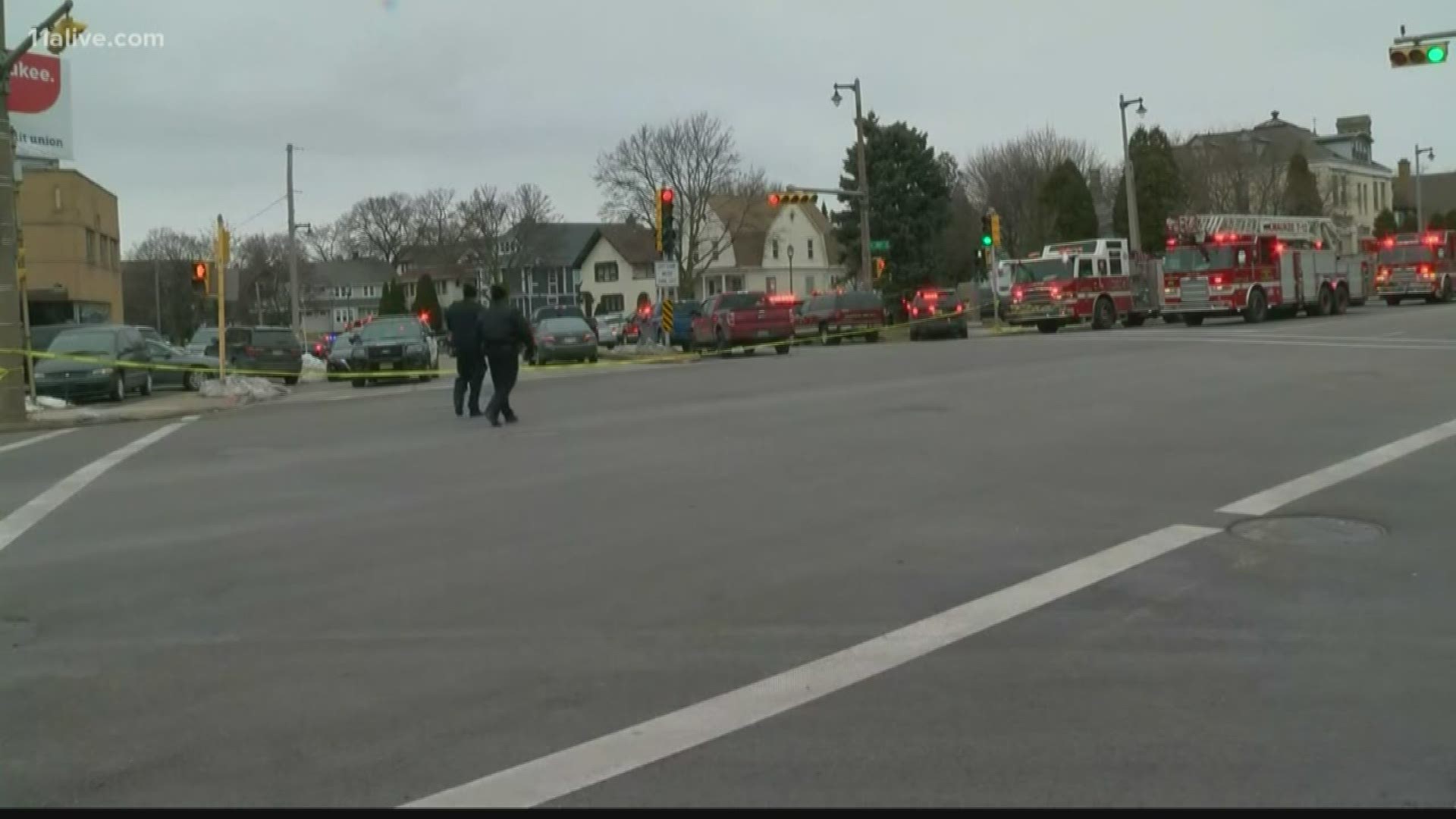When Roz Levy-Weintraub informed me of the death of Elie Wiesel at the conclusion of our Sabbath service on Saturday, my heart fluttered and the shock of the news was devastating. How could this be? Elie Wiesel dead? He was larger than life. For years his voice was the conscience of the world. He was my role model who spoke up against injustices. He was one of the few non-rabbis who was made an honorary member of the Rabbinical Assembly.
While his own experiences suffering at the hands of the Nazis certainly impacted his passion to never allow the world to forget the horrors of the Holocaust, he became the spokesman to urge us all to not allow such horrors to take place on our watch. He spoke out against the genocides in Cambodia, Rwanda, Bosnia and Darfur. The Nobel Peace Prize laureate was never afraid to challenge world leaders. I will never forget April of 1985, when at the White House Wiesel thanked President Reagan for awarding him the Congressional Gold Medal of Achievement. Wiesel then implored Reagan not to go to Bitburg, Germany, where the president was scheduled to lay a wreath of flowers in a cemetery where 47 members of the Nazi SS were buried. "That place," he told the president, "is not your place. Your place is with the victims of the SS." He spoke truth to power. Every year during my 10th grade confirmation class, I spend one session with my students teaching them about Elie Wiesel and recounting for them his courageous words at the White House.
![How Palestinian protesters helped Black Lives Matter: Column [oembed : 86676368] [oembed : 86676368] [oembed : 86676368] [oembed : 86676368] [oembed : 86676368] [oembed : 86676368] [oembed : 86676368] [oembed : 86676368] [oembed : 86676368] [oembed : 86676368] [oembed : 86676368] [oembed : 86676368] [oembed : 86676368]](/Portals/_default/Skins/PrestoLegacy/CommonCss/images/smartembed.png)
I was privileged to attend the dedication ceremony on April 22, 1993, at the Holocaust Memorial Museum in Washington, D.C., presided over by President Clinton. It was fittingly a dreary, rainy day. Elie Wiesel was the last to speak. I will never forget his words:
“My good friends, it is not because I cannot explain that you won’t understand, it is because you won’t understand that I cannot explain. How can one understand that human beings could choose such inhumanity? ... What have we learned? We have learned some lessons, minor lessons, perhaps, that we are all responsible, and indifference is a sin and a punishment. And we have learned that when people suffer we cannot remain indifferent.”
My last encounter with Elie Wiesel was in May of 2002. I called his office at Boston University to ask whether he'd consider sending me a letter of condolence to the family of Helen Fishman Navi. Helen, a survivor of Auschwitz and member of my congregation, grew up with Wiesel in Sighet, Romania. Within a few minutes there was a message from my secretary that Elie Wiesel was on the phone. He told me that he had already dictated a letter to fax to me. I thanked him for his kindness. He concluded his letter to the family saying:
"I knew Helen’s family, the Fishmans. One of them was a Heder friend. Helen evoked him with melancholy. There was deep melancholy in her when she spoke and when she was silent. In a mysterious way, part of her remained in Sighet. Now, as she was about to leave this world and ascend to the world of eternal truth, she will tell the celestial Tribunal the rest of the story — our story. May her memory be a blessing."
![Stopping the civilian-military drift: Column [oembed : 86676468] [oembed : 86676468] [oembed : 86676468] [oembed : 86676468] [oembed : 86676468] [oembed : 86676468] [oembed : 86676468] [oembed : 86676468] [oembed : 86676468] [oembed : 86676468] [oembed : 86676468] [oembed : 86676468] [oembed : 86676468]](/Portals/_default/Skins/PrestoLegacy/CommonCss/images/smartembed.png)
POLICING THE USA: A look at race, justice, media
Now, Elie Wiesel has ascended from this earthly world to the heavenly one. And while no one will ever fill his shoes, let us all strive to carry on his legacy and the lessons he has taught us by never forgetting to stand against injustice, and to ensure that future generations will never ever forget man’s inhumanity to man. May his memory be forever a blessing.
Reuven H. Taff, a past president of the Greater Sacramento Board of Rabbis, is rabbi and spiritual leader of the Mosaic Law Congregation.
In addition to its own editorials, USA TODAY publishes diverse opinions from outside writers, including our Board of Contributors. To read more columns, go to the Opinion front page and follow us on Twitter @USATOpinion.



![wiesel070416 [image : 86681004]](http://www.gannett-cdn.com/media/2016/07/04/USATODAY/USATODAY/636032432658675562-WIESEL.JPG)
